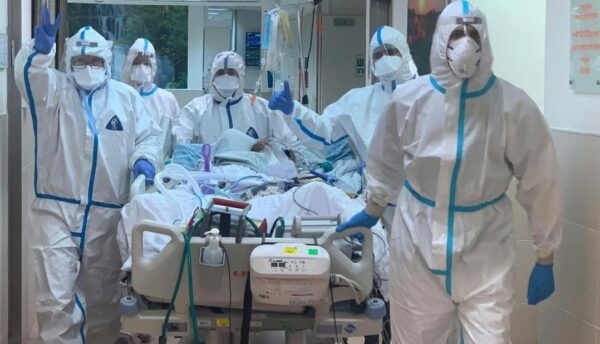Starting Tuesday, August 24, 1,500 medical technologists, including 150 operators of ventilators and ECMO heart-lung machines, will only be working until 3 pm and won’t be available for night shifts.
These sanctions are part of these workers’ fight for better employment conditions and a continuation of their labor dispute that was first declared in 2019. The measures will primarily affect hospitals outside central Israel, where the technologists say they are have not received the pay due to them for night and on-call shifts.
7 Public Hospitals Not Accepting New COVID-19 Patients
As of Monday, August 23, seven of Israel’s public hospitals have started refusing to take in new coronavirus patients, according to an announcement made by their directors on Sunday, August 22, citing budget constraints and a lack of personnel. The public hospitals taking these measures are: Shaare Zedek Medical Center and Hadassah University Hospital, both in Jerusalem; Laniado Hospital in Netanya; Mayanei Hayeshua Medical Center in Bnei Brak; and the French Hospital, the Holy Family Hospital, and the English Hospital in Nazareth. Most of these hospitals have been among Israel’s most crowded throughout the coronavirus pandemic.
The directors of these hospitals also announced that beginning Wednesday, August 25, they will be downgrading their general level of service to a Sabbath footing, which limits the health center’s operations to life-saving treatment only. This is how most hospitals in the country operate on weekends, but will now be instituted until further notice in the seven hospitals to save costs, until an agreement is reached.
On Sunday, August the directors of the seven public hospitals held a press conference outside the offices of the Health Ministry in Jerusalem during which they claimed that their hospitals are the victims of government neglect, and that they are launching a protest against what they said was continued underfunding and lack of adequate steps to support the healthcare system after 16 months of crisis. “We have been abandoned at the height of the coronavirus crisis,” a joint statement from the seven reads. “We have reached the worst crisis in our history.”
“Bureaucracy, excuses, committees – we can’t take in COVID-19 patients anymore. This isn’t a strike – we just can’t do it,” said Laniado’s Director General Nadav Chen. The hospital doesn’t have money to pay suppliers and lacks staff because “promises weren’t followed through,” he said. “The hospitals need to be managed day by day, hour by hour. There are a lot of crises. This is what’s going on – it’s embarrassing.” There have been one million verified infections and 6,830 COVID-19 fatalities in Israel since the pandemic began.



